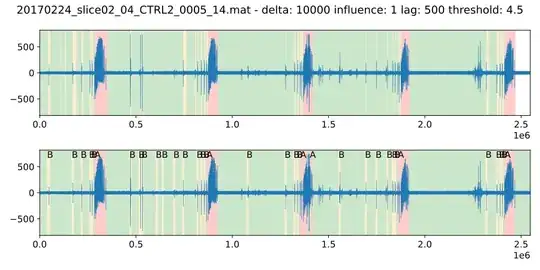I am working on a classification algorithm for brain rhythms. However, when I implemented the metrics for precision, accuracy, F1 score and recall. My results show that my algorithm has a high precision but a low recall.
I am not expert on this kind of metrics and analysis and I don't know if it makes sense to have a high precision but a low recall. What does it mean?
This is my reference and output models.
"A": {
"FN": 5,
"FP": 0,
"Jaccard Index": 0.5454545454545454,
"TP": 6,
"f1-score": 0.7058823529411764,
"precision": 1.0,
"recall": 0.5454545454545454
},
"B": {
"FN": 34,
"FP": 5,
"Jaccard Index": 0.38095238095238093,
"TP": 24,
"f1-score": 0.5517241379310345,
"precision": 0.8275862068965517,
"recall": 0.41379310344827586
},
"C": {
"FN": 39,
"FP": 9,
"Jaccard Index": 0.36,
"TP": 27,
"f1-score": 0.5294117647058824,
"precision": 0.75,
"recall": 0.4090909090909091
},
"SNR": 28.121645860790924
